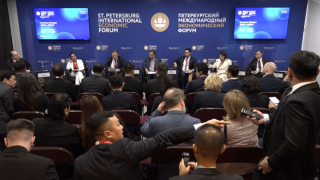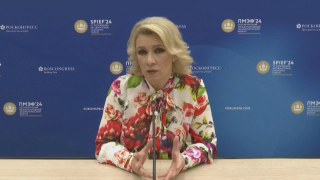Amidst the current geopolitical confrontation and attempts to destabilize global supply chains, there is growing demand for reliable, mutually beneficial, and equitable forms of collaboration. These processes are prompting Eurasian states to find new forms and methods of economic cooperation, primarily in the financial, economic, transport, and logistics sectors. In this sense, Russia’s initiative to form the Greater Eurasian Partnership (GEP) is more important than ever. The GEP is a civilizational project whose main idea is to organize a common space based on voluntary principles without outside interference or pressure. The project is designed to help create favourable conditions in the Eurasian states for progressive sustainable development, more effective industrial relations, and long-term economic growth. Can the Greater Eurasian Partnership (GEP) become a non-discriminatory alternative to Western models of relations? What role do the Eurasian Economic Union, Shanghai Cooperation Organization, and Association of Southeast Asian Nations play in the dynamics of the region’s integration and what is their potential? How could the integration experience of Eurasia’s leading economies be used to promote the GEP? How complementary is the transport, logistics, energy, and payment infrastructure of regional players? How interconnected are they and what priorities can be highlighted when forming the GEP? Will the GEP be able to build on and enhance the scientific and technological potential of Eurasian states, including with regard to sustainable development?
Moderator
— Victoria Panova, Vice-Rector, National Research University Higher School of Economics; Director, Center “Expert Council on the Participation of the Russian Federation in the BRICS Association”
Panellists
— Dmitry Volvach, Deputy Minister of Economic Development of the Russian Federation
— Sergey Glazyev, Member of the Board, Minister in Charge of Integration and Macroeconomics, Eurasian Economic Commission
— Konstantin Zatulin, First Deputy Chairman of the Committee of the State Duma of the Federal Assembly of the Russian Federation on CIS Affairs, Eurasian Integration and Relations with Compatriots
— Karin Kneissl, Head, Center G.O.R.K.I. (Geopolitical Observatory for Russia’s Key Issues) SPbU; Minister of Foreign Affairs of the Republic of Austria (2017–2019)
— Alexey Overchuk, Deputy Prime Minister of the Russian Federation
— Alexander Pankin, Deputy Minister of Foreign Affairs of the Russian Federation
— Nenad Popovic, Minister Without Portfolio, Government of the Republic of Serbia
— Khan Sohail, Deputy Secretary General, Shanghai Cooperation Organisation
— Abdul Umari, Acting Minister of Labour and Social Affairs of the Islamic Emirate of Afghanistan
— Ilan Shor, Head of Political Bloc Victory, Cultural and Educational Center of Moldova
— Alexander Shokhin, President, Russian Union of Industrialists and Entrepreneurs
Source











